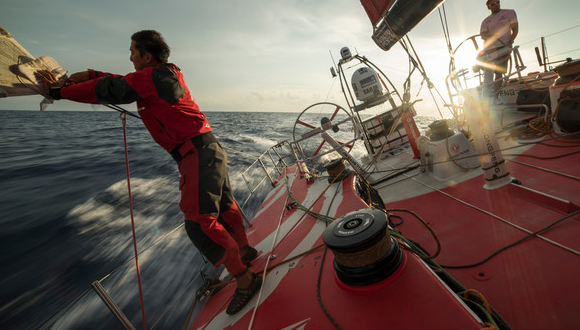As China Inc goes global, buying up the likes of Italian tyre company Pirelli, its executives are looking for more subtle ways of introducing their businesses to the rest of the world. It is the commercial equivalent of the Chinese government’s recent foreign policy decision to discard hard-power projection in favour of soft-power persuasion.
The shift is partly because whenever a Chinese company acquires an overseas company, questions are raised about its intentions. Will it move jobs to China? Does it intend to strip the target company of its best technology?
In their search for new marketing techniques, some Chinese executives have discovered what for them is an unusual tool — international sponsorships of popular sporting events. The famous Volvo Ocean Race, for example, might one day become the Geely-Dongfeng Ocean Race.
The Volvo Ocean Race, the 21st century reincarnation of the venerable Whitbread Round the World Yacht Race, is arguably already a Chinese-sponsored event in all but name. Its eponymous owner-sponsors are Swedish truck and heavy-equipment maker Volvo Group and its former sister unit, Volvo Cars. Volvo Cars is now a division of Geely, the Chinese carmaker, while Volvo Group recently completed its purchase of a 45 per cent stake in the commercial vehicle operations of Dongfeng, a state-owned group based in central China.
One of the more unpredictable outcomes of Volvo Group’s partnership with Dongfeng was a decision by the latter’s commercial truck unit to sponsor one of the six boats in this year’s iteration of the sailing competition.
“It’s a voyage of discovery for them because Dongfeng have never been involved in sport and they’ve never done any marketing or real communication outside of China,” says Mark Turner, a former Whitbread competitor who has been involved with the Dongfeng Race Team since its inception.
The Volvo Ocean Race’s penultimate leg runs between Portugal and France, where Dongfeng last year paid €800m for a 14 per cent stake in Peugeot. “You can see that in quite a negative way in France — a Chinese company coming in and buying into a French company,” Mr Turner says. “Or you can see it through this kind of sponsorship. It gives Dongfeng’s brand a soft outer shell because it associates them with a sport that French people give real credit to and respect. Offshore sailing in France is huge.”
The boat, sponsored by a Dongfeng unit whose main manufacturing operation is in the inland Chinese city of Xian, was near the top of the table going into the race’s most challenging leg — from New Zealand to Brazil via Cape Horn. Only a freak demasting in the Southern Ocean cost Dongfeng its fifth consecutive top-three finish.
Dongfeng’s decision to sponsor the boat has paid unexpected dividends. Before veering off into the Southern Ocean, this year’s Volvo Ocean Race traced the route of the fabled maritime Silk Road, which the Chinese government is hoping to bring back to life with a $250bn-and-growing infrastructure investment drive. The contest has also featured port calls in some of Dongfeng’s most important markets, including South Africa, the Middle East and Brazil. This allowed the company to fly about 50 Pakistani clients and distributors to the finish of leg two in Abu Dhabi.
The current leg, which began in Brazil on Sunday, finishes in Newport, Rhode Island. Assuming the Dongfeng boat’s impressive form is not knocked off-course by another mechanical failure, this raises the prospect of a victorious crew sponsored by a landlocked Chinese truck manufacturer raising glasses of champagne to thousands of admiring “yachties” in one of the US’s greatest sailing centres. If this dream result comes true for Dongfeng, it will provide the type of exposure that not even all the money in Newport could buy via more traditional advertising channels.
A Dongfeng victory party in Newport would not, of course, be without its ironies, given the rather more circumspect view taken of Chinese investment in the US compared with Europe. This is best epitomised by the difficulties Huawei has faced in America because of persistent — but still unproven — assertions that the Chinese technology company is somehow connected to the People’s Liberation Army.
But in an era in which it is no longer hard to imagine a Chinese rebranding of the Volvo Ocean Race, perhaps the Huawei Daytona 500 is not so distant a prospect either.
